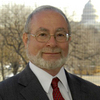Robert Barr, BCLT Executive Director, UC Berkeley School of Law
Oren Bracha, University of Texas School of Law
Alissa Cooper, Center for Democracy & Technology
Mark Cooper, Consumer Federation of America
Eric Goldman, High Tech Law Institute at Santa Clara Law School
John Horrigan, Pew Internet and American Life Project
Kim Howell, Microsoft
Jeffrey Rohrs, ExactTarget
Jason Schultz, Samuelson Law, Technology & Public Policy Clinic
Paul Schwartz, BCLT, UC Berkeley School of Law
Ari Schwartz Center for Democracy and Technology (CDT)
Norman I. Silber, Hofstra University School of Law
Peter Swire, Moritz College of Law, The Ohio State University
Rebecca Tushnet, Georgetown University Law Center
Hal Varian, Google & UC Berkeley iSchool
Joel Winston, Federal Trade Commission

Robert Barr is the executive director of the Berkeley Center for Law & Technology. Formerly, he was vice president for intellectual property and worldwide patent counsel for Cisco Systems in San Jose, California, where he was responsible for all patent prosecution, licensing and litigation.
Barr has taught at University of California, Berkeley School of Law (Boalt Hall) and at Hastings College of the Law, where he was an adjunct professor of patent law from 1994 to 1999.
A frequent speaker on patent reform, Barr has testified twice at the Federal Trade Commission hearings on Competition and Intellectual Property Law and Policy in the Knowledge-Based Economy. He was named by the Daily Journal as one of the top 25 intellectual property lawyers in California in 2003, and as one of the top 10 in-house intellectual property lawyers in 2004.

Oren Bracha is an Assistant Professor of Law at the University of Texas School of Law. He received his LL.B. from the Tel-Aviv University Faculty of Law in 1998 and his S.J.D. from Harvard Law School in 2005. Bracha is a legal historian and an intellectual property law scholar. He published various articles about the history of intellectual property, copyright law, and internet law. His forthcoming book Owning Ideas is an intellectual history of American intellectual property law in the nineteenth century. Bracha was a law clerk for Chief Justice Aharon Barak of the Supreme Court of Israel. During his time at Harvard Law School he worked on various projects for the Berkamn Center for Internet and Society. His fields of interest and scholarship include intellectual property, cyberlaw, legal history and legal theory.

Alissa Cooper is the Chief Computer Scientist at the Center for Democracy and Technology. She works on a range of issues including consumer privacy, spyware, digital copyright, network neutrality, and CDT’s identity project. Alissa moved to the Washington area after completing her Bachelor’s and Master’s degrees in Computer Science at Stanford University. There her work focused on computer security issues and their policy implications.

Mark Cooper holds a Ph.D. from Yale University and is a former Yale University and Fulbright Fellow. He is Director of Research at the Consumer Federation of America, a Fellow at the Stanford Law School Center for Internet and Society and a Fellow at The Donald McGannon Communications Center of Fordham University. He has provided expert testimony in over 250 cases for public interest clients including Attorneys General, People’s Counsels, and citizen interveners before state and federal agencies, courts and legislators in almost four dozen jurisdictions in the U.S. and Canada. He is the author of five books and numerous articles and papers on media and communications.

Eric Goldman is an Assistant Professor of Law and Director of the High Tech Law Institute at Santa Clara University School of Law. Before he became a full-time academic, he practiced Internet law for 8 years in the Silicon Valley. He teaches Cyberspace Law and Intellectual Property, and his research focuses on Internet and marketing law topics such as search engines, spam and adware. He blogs on Internet law topics at the Technology & Marketing Law Blog [http://blog.ericgoldman.org/].

John Horrigan studies the online behavior of broadband internet users and consumers of other leading edge information technology. He also leads Pew’s research on the internet’s impact on people’s social networks and news gathering habits. He has spoken at numerous conferences and seminars, including appearances at the Organization for Economic Cooperation and Development, the World Economic Forum, the Associated Press Broadcast Advisory Board, and the Federal Communications Commission. Horrigan is also Chairman of the Board of the Telecommunications Policy Research Conference . He was program committee chair for the conference in 2004 and 2005.
Prior to joining the Pew Internet & American Life Project, Horrigan was a staff officer for the Board on Science, Technology, and Economic Policy at the National Research Council. He has also served as press secretary to U.S. Congressman Jake Pickle. His past research has focused on technology and telecommunications policy, including work on universal telephone service, state and local telecom policy, and U.S. R&D policy.
Horrigan received his Ph.D. in public policy from the University of Texas at Austin and his B.A. in government and economics from the University of Virginia.
Apart from his responsibilities at Pew, Horrigan has taught as an Adjunct Professor of Government at the University of Texas at Austin’s Washington Campus, the Archer Center. John and his wife Lisa live in Baltimore.

Kim Howell is a Senior Privacy Strategist for Microsoft and manages the Trustworthy Computing Privacy Team. She has been working at Microsoft for 8 years, 6 of those in privacy. Her team is manages the corporate privacy standards and is also responsible for reviewing all Windows, Windows Live, and MSN products, services and marketing campaigns for privacy compliance. She is a two time recipient of the MS Trustworthy Computing Privacy Excellence Award for her work on the Microsoft Privacy Standard for Development and the Microsoft Online Privacy Statement.

Jeffrey Rohrs Vice President Marketing, ExactTarget. As equal parts marketing strategist, hands-on tactician, and admitted “recovering attorney,” Jeff’s career has been driven by a desire to help companies optimize their online marketing efforts. His expertise spans the areas of website development, email marketing, search engine marketing, blogging, online video, and emerging social media. Prior to joining ExactTarget in 2007, Jeff was president of Optiem, a full-service digital marketing agency. While at Optiem, Jeff developed interactive marketing strategies for a wide range of clients including American Greetings, Sherwin-Williams, Things Remembered, Insurance.com, and Calphalon. Some of Jeff’s accomplishments include:
- Conducting one of the email marketing industry’s first email audits (as profiled in Marketing Sherp).
- Authoring The Sausage Manifesto, an open letter to Google, Yahoo, and other paid search networks about their slow response to the click fraud problem.
- Contributing to the strategy for the Cuyahoga County Public Library Website which won Ektron’s 2006 Website of the Year honors.
- Moderating legal, issues track, and other sessions at Incisive Media’s Search Engine Strategies conferences (since 2001) and Third Door Media’s Search Marketing Expo (since 2007).
- Speaking at a wide variety of industry conferences including the EEC’s Email Evolution Conference (2008), Search Marketing World (Ireland, 2007), Webmaster World’s PubCon (2006), and Marketing Sherpa’s Email Summit (2006).
In his current role, Jeff oversees ExactTarget’s Agency Partner program and helps guide the company’s thought-leadership efforts. Occasionally, you can catch him blogging about The Four Rights of Email Marketing. Jeff received his J.D. and Masters in Mass Communication from Boston University. His undergraduate degree is from Miami University, where he currently serves on the Advisory Board for the school’s Armstrong Interactive Media Studies Institute.
_rdax_100x120.jpg)
Jason Schultz is a Staff Attorney specializing in intellectual property and reverse engineering. Prior to joining EFF, Schultz worked at the law firm of Fish & Richardson P.C., where he spent most of his time invalidating software patents and defending open source developers in law suits. While at F&R, he co-authored an amicus brief on behalf of the Internet Archive, Prelinger Archives, and Project Gutenberg in support of Eric Eldred’s challenge to the Sonny Bono Copyright Term Extension Act. Prior to F&R, Schultz served as a law clerk to the Honorable D. Lowell Jensen and as a legal intern to the Honorable Ronald M. Whyte, both in the Northern District of California federal court system. During law school, Schultz served as Managing Editor of the Berkeley Technology Law Journal and helped found the Samuelson Clinic, the first legal clinic in the country to focus on high tech policy issues and the public interest. Schultz also has undergraduate degrees in Public Policy and Women’s Studies from Duke University. Jason maintains a personal blog at lawgeek.net.

Paul Schwartz is Professor of Law at University of California, Berkeley School of Law (Boalt Hall). A leading international expert on information privacy, copyright, telecommunications and information law, he has published widely on these topics. His articles have appeared in the Harvard Law Review, Yale Law Journal, Stanford Law Review, Michigan Law Review, and other periodicals. Professor Schwartz has testified as an expert before Committees of the Senate and House and acted as an advisor to the Commission of the European Union and the Department of Justice, Canada. In 2002-2003, Professor Schwartz was a Berlin Prize Fellow at the American Academy in Berlin and a Transatlantic Fellow at the German Marshall Fund’s Transatlantic Center in Brussels. He is on the Advisory Board of the Electronic Privacy Information Center and Microsoft’s Trusted Computing Academic Advisory Board. Professor Schwartz is a member of the American Law Institute.

Ari Schwartz is the Vice President and Chief Operating Officer of the Center for Democracy and Technology (CDT). Schwartz’s work focuses on increasing individual control over personal and public information. He promotes privacy protections in the digital age and expanding access to government information via the Internet. He regularly testifies before Congress and Executive Branch Agencies on these issues.
Schwartz also leads the Anti-Spyware Coalition (ASC) , anti-spyware software companies, academics, and public interest groups dedicated to defeating spyware. In 2006, Schwartz won the RSA award for Excellence in Public Policy for his work building the ASC and other efforts against spyware. He was also named one of the Top 5 influential IT security thinkers of 2007 by Secure Computing Magazine.

Norman Silber teaches and writes in areas that relate to consumer law, commercial law, legal history and nonprofit corporations. Recent articles include “Late Charges, Regular Billing, and Reasonable Consumers,” (forthcoming, Kent Law Review), “Anti-consultative Trends in Nonprofit Governance,” (forthcoming, Oregon Law Review) and “From the Jungle to The Matrix: The Future of Consumer Protection in Light of its Past,” (in the anthology Consumer Protection in the Age of the Information Economy (Winn, ed., 2006). Currently he serves as an officer of the board of directors of Consumers Union, the publisher of Consumer Reports magazine and Consumer Reports Online, https://calmail.berkeley.edu/webmail/images/blank.png. His recent books, With All Deliberate Speed: The Life of Philip Elman, An Oral History Memoir (2004), and A Corporate Form of Freedom (Westview Press, 2001), concern the legal history of Post-World War Two America, and the development of the law of nonprofit corporations, respectively. He has also written a acclaimed book about consumer protection and social reform, Test and Protest. He also scripted a PBS television documentary about risk and consumer regulation. Professor Silber is a past chair of the Association of the Bar of the City of New York Consumer Affairs Committee, and a past director of the American Council on Consumer Interests. He joined the Hofstra law faculty in 1989, after practicing with the New York City law firm of Patterson, Belknap, Webb & Tyler, and serving as a law clerk to Judge Leonard I. Garth of the U.S. Court of Appeals for the Third Circuit. Prior to entering law school, Professor Silber taught history at Sarah Lawrence College and Yale University. He is an interviewer for the Columbia University Oral History Research Office.

Peter Swire is the C. William O’Neill Professor of Law at the Moritz College of Law of the Ohio State University, director of that school’s Washington, D.C. summer program, and a Senior Fellow at the Center for American Progress. From 1999 to early 2001 he served as the Clinton Administration’s Chief Counselor for Privacy, in the U.S. Office of Management and Budget. In that position, he coordinated Administration policy on the use of personal information in the public and private sectors, and served as point of contact with privacy and data protection officials in other countries.
His current projects include “Privacy and Antitrust,” comments on the FTC’s proposed guidelines for online behavioral profiling, and several works about how to assure consumer protection on the Internet.
He was White House coordinator for the proposed and final HIPAA medical privacy rules, and played a leading role on topics including financial privacy, Internet privacy, encryption, public records and privacy, ecommerce policy, and computer security and privacy. With Lawrence Lessig, he is Editor of the Cyberspace Law Abstracts of the Social Science Research Network. Many of his writings appear at http://www.peterswire.net/.

Rebecca Tushnet is a professor at the Georgetown University Law Center. After clerking for Chief Judge Edward R. Becker of the Third Circuit Court of Appeals and Associate Justice David H. Souter on the Supreme Court, she practiced intellectual property law at Debevoise & Plimpton before joining the NYU faculty, then moving to Georgetown. Her publications include “Gone in 60 Milliseconds: Trademark Law and Cognitive Science” (Texas L. Rev. 2008); “My Library: Copyright and the Role of Institutions in a Peer-to-Peer World” (UCLA L. Rev. 2006), “Copy This Essay: How Fair Use Doctrine Harms Free Speech and How Copying Serves It” (Yale L.J. 2004), and “Copyright as a Model for Free Speech Law” (B.C. L. Rev. 2000). Her work currently focuses on the relationship between the First Amendment and false advertising law. She has advised and represented several fan fiction websites in disputes with copyright and trademark owners. She is a member of the board of the Organization for Transformative Works, a nonprofit dedicated to supporting and promoting fanworks. She is also an expert on the law of engagement rings.

Hal Varian is the Chief Economist at Google. He started in May 2002 as a consultant and has been involved in many aspects of the company, including auction design, econometric, finance, corporate strategy and public policy.
He also holds academic appointments at the University of California, Berkeley in three departments: business, economics, and information management.
He received his SB degree from MIT in 1969 and his MA in mathematics and Ph.D. in economics from UC Berkeley in 1973. He has also taught at MIT, Stanford, Oxford, Michigan and other universities around the world.
Dr. Varian is a fellow of the Guggenheim Foundation, the Econometric Society, and the American Academy of Arts and Sciences. He was Co-Editor of the American Economic Review from 1987-1990 and holds honorary doctorates from the University of Oulu, Finland and the University of Karlsruhe, Germany.
Professor Varian has published numerous papers in economic theory, industrial organization, financial economics, econometrics and information economics. He is the author of two major economics textbooks which have been translated into 22 languages. He is the co-author of a bestselling book on business strategy, Information Rules: A Strategic Guide to the Network Economy and wrote a monthly column for the New York Times from 2000 to 2007.

Joel Winston is Associate Director of the Division of Privacy and Identity Protection of the Federal Trade Commission’s Bureau of Consumer Protection. That Division has responsibility over consumer privacy and data security issues, identity theft, and credit reporting matters, among other things. Mr. Winston is currently serving on the federal government’s Identity Theft Task Force, which was created by President Bush in March 2006.
Prior to his current position, Mr. Winston was Associate Director of the FTC’s Division of Financial Practices and, previous to that, Assistant Director in the FTC’s Division of Advertising Practices.
Mr. Winston is a frequent speaker and provides guidance and advice to the business and legal communities on consumer protection issues. He received his undergraduate and law degrees from the University of Michigan.